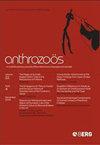Attitudes and Care Practices of Cat Caretakers in Hawaii
IF 2.3
2区 农林科学
Q2 SOCIOLOGY
引用次数: 40
Abstract
Individuals who were maintaining colonies of homeless, free-roaming cats on the island of Oahu were surveyed to learn about the attitudes and care practices associated with colony maintenance. The 75 respondents were primarily female pet owners, middle-aged, living with spouses, well-educated, and employed full time, dispelling the image of caretakers as elderly, socially-isolated individuals. Most of the them believed that outdoor cat colonies should continue to exist and that colony maintenance is a way of curbing pet overpopulation so long as the cats are sterilized. The majority of respondents had been maintaining cat colonies for two to four years. All caretakers reported having attempted to socialize the cats and nearly half had been successful in adopting out cats. Most were caring for one colony consisting of fewer than 10 animals which were fed once or twice daily. All caretakers were making efforts to trap the cats and take them for sterilization and veterinary care. Although many took advantage of the Hawaiian Humane Society's free sterilization program for colony cats, some caretakers paid out-of-pocket for sterilization and more than half reported paying for all veterinary care. Love of cats, opportunity for nurturing, and enhanced feelings of self-esteem appear to be some of the factors underlying the remarkable commitment of the caretakers. Colony management may not be practical in some areas due to risks to wildlife and human health. However, where feasible, the availability of individuals willing to provide ongoing, responsible care to these animals may be a significant resource for animal welfare and control organizations.夏威夷猫看护人的态度和护理实践
对在瓦胡岛维护无家可归的自由漫游猫群的个人进行了调查,以了解与群体维护相关的态度和护理做法。75名受访者主要是女性宠物主人,中年,与配偶同住,受过良好教育,全职工作,消除了看护人作为老年人,社会孤立个体的形象。他们中的大多数人认为,户外猫群应该继续存在,只要猫被绝育,群体维护是遏制宠物人口过剩的一种方式。大多数受访者饲养猫群的时间为2至4年。所有的看护人都报告说,他们试图让猫与人交往,近一半的人成功地领养了猫。大多数人照顾一个少于10只动物的群体,每天喂食一次或两次。所有的看护人都在努力捕捉这些猫,并带它们进行绝育和兽医治疗。尽管许多人利用了夏威夷人道协会为殖民地猫提供的免费绝育计划,但一些饲养员自付绝育费用,超过一半的人表示支付了所有兽医护理费用。对猫的爱,养育猫的机会,以及增强的自尊感,似乎是看护人的非凡承诺背后的一些因素。由于对野生动物和人类健康的风险,群体管理在某些地区可能不实际。然而,在可行的情况下,愿意为这些动物提供持续、负责任的照顾的个人可能是动物福利和控制组织的重要资源。
本文章由计算机程序翻译,如有差异,请以英文原文为准。
求助全文
约1分钟内获得全文
求助全文
来源期刊

Anthrozoos
农林科学-兽医学
CiteScore
3.40
自引率
18.80%
发文量
43
审稿时长
>36 weeks
期刊介绍:
A vital forum for academic dialogue on human-animal relations, Anthrozoös is a quarterly, peer-reviewed journal that has enjoyed a distinguished history as a pioneer in the field since its launch in 1987. The key premise of Anthrozoös is to address the characteristics and consequences of interactions and relationships between people and non-human animals across areas as varied as anthropology, ethology, medicine, psychology, veterinary medicine and zoology. Articles therefore cover the full range of human–animal relations, from their treatment in the arts and humanities, through to behavioral, biological, social and health sciences.
 求助内容:
求助内容: 应助结果提醒方式:
应助结果提醒方式:


